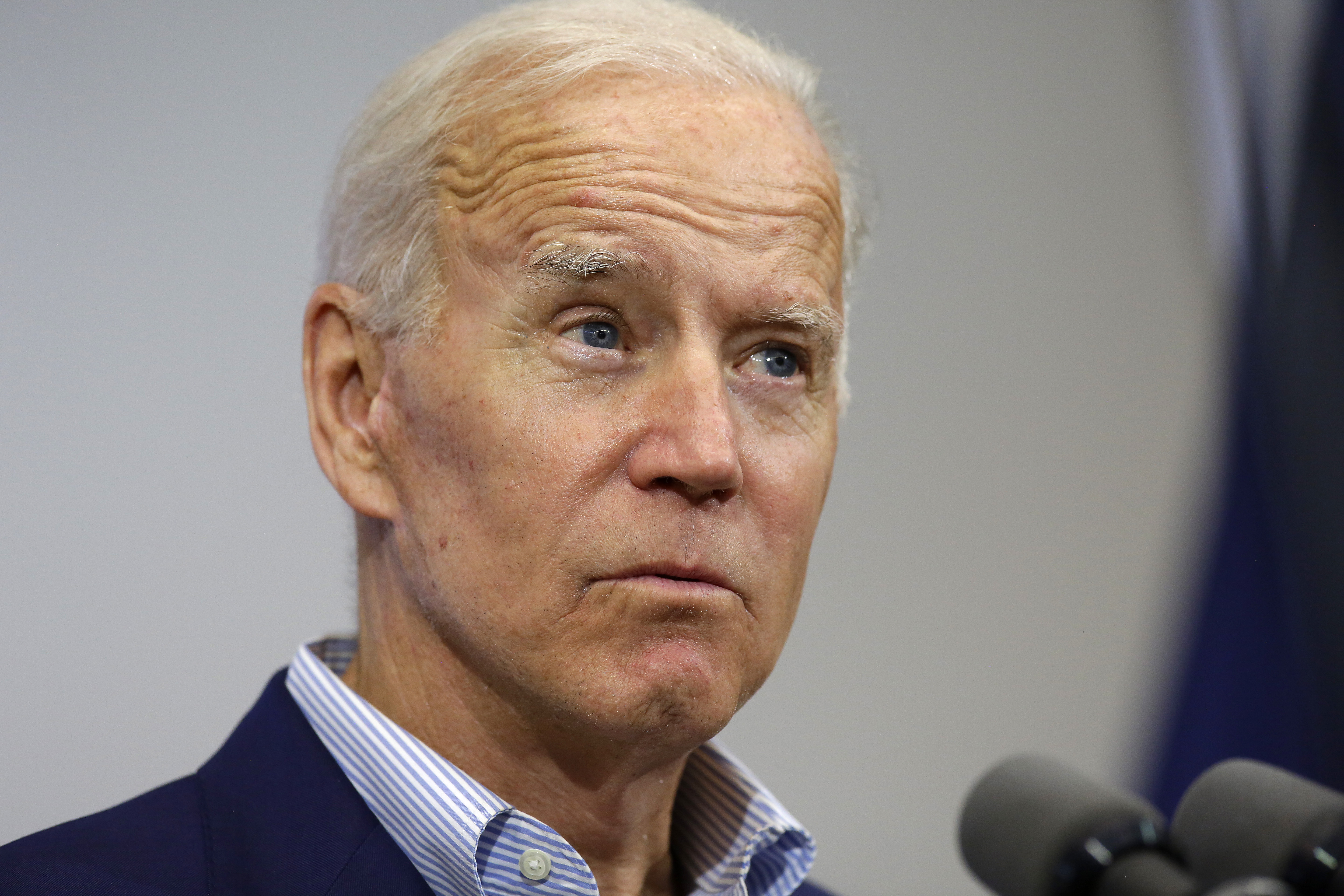Democrats Want to Tackle Reparations, but Joe Biden Isn’t So Sure

Credit to Author: Harry Cheadle| Date: Wed, 19 Jun 2019 12:12:27 +0000
For the first time in decades, reparations are part of the mainstream political debate. Top-tier Democratic presidential candidates, including Elizabeth Warren and Kamala Harris, have discussed the need to address the historic evil of slavery and the massive wealth gap caused by bondage and systemic racism. While the specifics of how much would be provided to whom, and how that might work, are usually left vague, there is widespread support among the 2020 contenders for at least a serious look at making reparations reality.
The key proposal many progressives are backing is a bill that would establish a commission on reparations—not a commitment to actual payouts or programs, to be sure, but a step toward a concrete proposal to enact them. Wednesday’s hearings on that measure, H.R. 40, mark the first time since 2007 that Congress has formally discussed the issue. The Senate version is sponsored by Cory Booker and cosponsored by fellow 2020 candidates Warren, Harris, Amy Klobuchar, Kirsten Gilibrand, and even Bernie Sanders, who has previously been skeptical about payments to descendants of slaves.
But Joe Biden, the Democratic frontrunner, won’t go there.
In a statement to VICE this week for a story about healthcare reparations, a Biden spokesperson said the former vice president “believes that we should gather the data necessary to have an informed conversation about reparations, but he has not endorsed a specific bill.” That means unlike the majority of the 2020 field, Biden does not necessarily support a reparations commission, the latest issue separating him from the progressives he’s running against.
Biden has staked out a position as a somewhat old-fashioned moderate who would welcome compromise with Republicans, a stance that has enraged the Democrats’ left-wing base. During the campaign, he has seemingly moved to the left at times, releasing a climate plan that some activists praised, and withdrawing his longtime support for a ban on the federal funding of abortions. But he has not exactly endeared himself to progressive advocates, most recently wagging his finger at an abortion-rights activist during an exchange last week.
His statement on reparations matched that of a candidate perfectly content to play it safe, as his critics have charged.
“I have the sense that he is trying to play to a segment of Trump’s voting base that he thinks can be swayed to vote for the Democratic Party again,” said William Darity, a professor of economics, African American studies, and public policy at Duke University and a leading scholar on reparations. “Consequently, there’s absolutely no way he would indicate that he was supportive of any aspect of a move to achieve reparations for Black American descendants of folks who were enslaved.”
There’s some history here. In 1975, when he was a 32-year-old U.S. senator, Biden opposed busing, then an extremely hot-button issue in the battle to desegregate schools. He also seemed to broadly reject the idea of reparations. “I do not buy the concept, popular in the ’60s, which said, ‘We have suppressed the black man for 300 years and the white man is now far ahead in the race for everything our society offers. In order to even the score, we must now give the black man a head start, or even hold the white man back, to even the race. I don’t buy that,” Biden told a Delaware newspaper that year, in comments recently unearthed by the Washington Post. He added, “I don’t feel responsible for the sins of my father and grandfather. I feel responsible for what the situation is today, for the sins of my own generation. And I’ll be damned if I feel responsible to pay for what happened 300 years ago.”
While running for president for the first time, in 1988, Biden also falsely claimed to have marched in the civil rights movement. Twenty years later, while running for president again, he called rising star Barack Obama “articulate and bright and clean and a nice-looking guy,” remarks that were widely taken to be patronizing and racist. And he had a key role in passing the 1994 crime bill, now regarded by progressives as a driver of mass incarceration that disproportionately harmed people of color.
Despite its new traction in the Democratic field, reparations isn’t a broadly popular policy. The progressive organization Data for Progress found in a 2018 poll that just 26 percent of the American public supported reparations. Though the proposal was much more popular among people under 45, Biden seems likely to focus more on older voters, his natural base of support in the primaries. Among Black Americans, reparations are also far from universally supported, with previous polls finding between 50 and 60 percent support for the policy. “Any politician who actually is staking out a position in support of reparations is running to the front of the pack, not putting their finger to the wind,” as Darity put it.
But so far, Biden’s history on race and moderate views don’t appear to have seriously hurt him among Black voters, and it’s unclear that his stance (or lack thereof) on reparations will have much impact, either. In a field that includes multiple Black senators and several pro-reparations candidates, Biden has a strong lead among Black voters in early polling. “At the moment,” Darity said, “Biden has a significant share of the Black vote without having promised Black folks much of anything.”
Sign up for our newsletter to get the best of VICE delivered to your inbox daily.
Follow Harry Cheadle on Twitter.
This article originally appeared on VICE US.